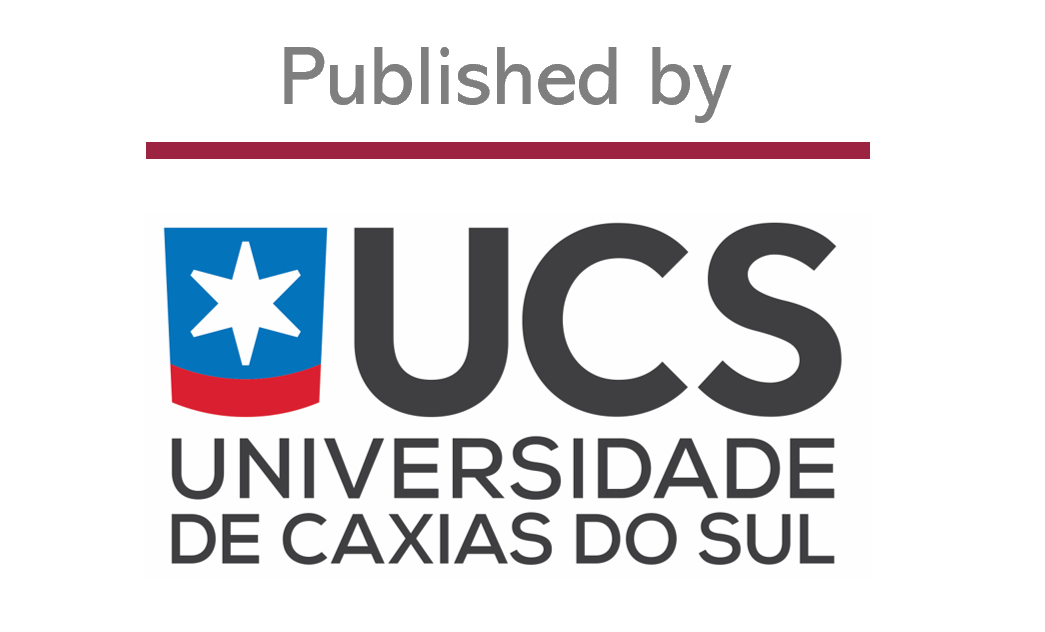Development of an evaporative cooler system applied to the air conditioning of urban buses
DOI:
https://doi.org/10.18226/23185279.v8iss1p46Abstract
Air conditioning for buses is an important incentive tool for the public transport, since it offers comfort to passengers and stimulates the use of this kind of transport which is fundamental to improve urban mobility. Currently, air conditioning equipment for buses is the mechanical vapor compression (MVC) type. However, this kind of system has two main disadvantages: the high financial cost and power consumption by the vehicle engine. The purpose of this study is to develop an evaporative cooler for buses, which is a simple, environmental friendly, low-cost solution that does not use engine power for its operation. The first step was the design and construction of the prototype. The following step was to evaluate the built prototype through performing experimental tests. The prototype presented a saturation efficiency of approximately 70%, airflow rate of 421.5 m³/h and energy consumption of 98.4 W. After determining the prototype technical characteristics, the evaporative cooling system was developed for an urban bus, seeking to meet the air renewal required by ANSI/ASHRAE standard 62.1 and to promote the passenger’s thermal comfort as specified by ISO 7730 and ANSI/ASHRAE Standard 55. The thermal comfort provided by the new cooling system was evaluated through the PMV-PPD indexes. A value of 0.35 was obtained for the PMV index and the PPD index obtained a value of 7, indicating that approximately 93% of the passengers will be satisfied regarding their thermal comfort for the established environmental conditions. The evaporative cooling system had a total energy consumption of approximately 0.4 kW, which represents only 5% of the energy that would be consumed by a MVC system. Therefore, the evaporative cooling performance depends on the climatic conditions of the environment, especially humidity. However, when applied in favorable conditions (low humidity), the evaporative cooling system proved to be a viable solution to replace the MVC systems in buses air-conditioning application, where its main advantage is its positive cost-benefit and energy savings.
References
ANSI/ASHRAE Standard 55-2010: Thermal environmetal conditions for human occupancy. Atlanta, EUA: ASHRAE Inc., 2010.
S.K. Wang. Handbook of air conditioning and refrigeration. 2. ed. New York: McGraw-Hill, 2001.
M.F. Sukri et al. “Achieving a better energy-efficient automotive air-conditioning system: a review of potential technologies and strategies for vapor compression refrigeration cycle”. Energy Efficiency, Volume 8, Issue 6, pp 1201–1229, 2015.
S. Datta et al. “Design and operating characteristics of evaporative cooling systems”. International Journal of Refrigeration, Volume 10, Issue 4, pp 205-208, 1987.
J.R. Camargo; C.D. Ebinuma; S. Cardoso. “Three methods to evaluate the use of evaporative cooling for human thermal comfort”. Thermal Engineering, Volume 5, Issue 2, pp 09-15, 2006.
H. Lotfizadeh; M. Layeghi. “Design and performance analysis of a small solar evaporative cooler”. Energy Efficiency, Volume 7, Issue 1, pp 55–64, 2014.
Y.A. Çengel; A.J. Ghajar, Heat and mass transfer: Fundamentals & Applications. 5 ed. New York: McGraw-Hill, 2015.
J. R. Watt; W. K. Brown, Evaporative Air Conditioning Handbook. 3. ed. Lilburn: The Fairmont Press, 1997.
G.J. Bom et al. Evaporative air-conditioning: applications for environmentally friendly cooling. Washington, DC: The World Bank, 1999.
American Society of Heating, Refrigerating and Air-Conditioning Engineers. ASHRAE handbook: HVAC Systems and Equipment. Atlanta: ASHRAE, 2008.
Y. Epstein; D.S. Moran. “Thermal Comfort and the Heat Stress Indices”. Industrial Health, Volume 44, pp 388–398, 2006.
K.C. Parsons. Human Thermal Environments: The effects of hot, moderate, and cold environments on human health, comfort and performance. 2. ed. New York: Taylor & Francis Group, 2003.
International Standards Organization. “ISO 7730: Ergonomics of the thermal environment: Analytical determination and interpretation of thermal comfort using calculation of the PMV and PPD indices and local thermal comfort criteria”. Geneva:ISO, 2005.
J.R. Watt. Evaporative air conditioning handbook. 2.ed. London: Chapman and Hall, 1986.
S. Delfani et al. "Energy saving potential of an indirect evaporative cooler as a pre-cooling unit for mechanical cooling systems in Iran”, Energy and Buildings, Volume 42, Issue 11, pp 2169-2176, 2010.
A. Alahmer. “Thermal analysis of a direct evaporative cooling system enhancement with desiccant dehumidification for vehicular air conditioning”. Applied Thermal Engineering, Volume 98, pp 1273–1285, 2016.
J.S. Thakur; A. Bergaley. “Performance Evaluation of Evaporative Air Conditioning System for Truck Cabins in Indian Environmental Conditions”. International Journal of Innovative Research in Science, Engineering and Technology, Volume 4, Issue 8, pp 7851-7856, 2015.
S.K. Kushwaha; A.C. Tiwari. “Evaporative cooling comfort in agricultural tractor cabin”. Journal of the Brazilian Society of Mechanical Sciences and Engineering, Volume 38, Issue 3, pp 965-976., 2016.
American Society of Heating, Refrigerating and Air-Conditioning Engineers. ASHRAE handbook: HVAC Applications. Atlanta: ASHRAE, 2011.
GEA, Bock FK Compressors for mobile applications https://vap.gea.com/Documentation/Data/DocumentationFiles/09689_Mobile%20Applications.pdf. Accessed 29 October 2017.
ANSI/ASHRAE Standard 62.1-2007: Ventilation for Acceptable Indoor Air Quality. Atlanta, EUA: ASHRAE Inc., 2007.
American Society of Heating, Refrigerating and Air-Conditioning Engineers. ASHRAE handbook: Fundamentals. Atlanta: ASHRAE, 2009.
A.A. Pesaran; Y.O. Parent; D. Bharathan. “Non-CFC Air Conditioning for Transit Buses.” SAE transactions Vol. 101. pp. 750-759, 1992.
Downloads
Published
How to Cite
Issue
Section
License
Copyright (c) 2020 Scientia cum Industria

This work is licensed under a Creative Commons Attribution 4.0 International License.
Declaração de originalidade e cessão de direitos autorais
Declaro que o presente artigo é original, não está sendo tendo sido submetido à publicação em qualquer outro periódico nacional ou internacional durante o processo de revisão. Através deste instrumento, em meu nome e em nome dos demais co-autores, porventura existentes, cedo os direitos autorais do referido artigo à revista SCIENTIA CUM INDUSTRIA. Contudo, a reprodução total ou parcial impressa ou eletrônica pode ser feita desde que o autor comunique oficialmente à revista. Declaro estar ciente de que a não observância deste compromisso submeterá o infrator a sanções e penas previstas na Lei de Proteção de Direitos Autorias. Declaro estar ciente de que a não observância deste compromisso submeterá o infrator a sanções e penas previstas na Lei de Proteção de Direitos Autorias (Nº9610, de 19/02/1998).




